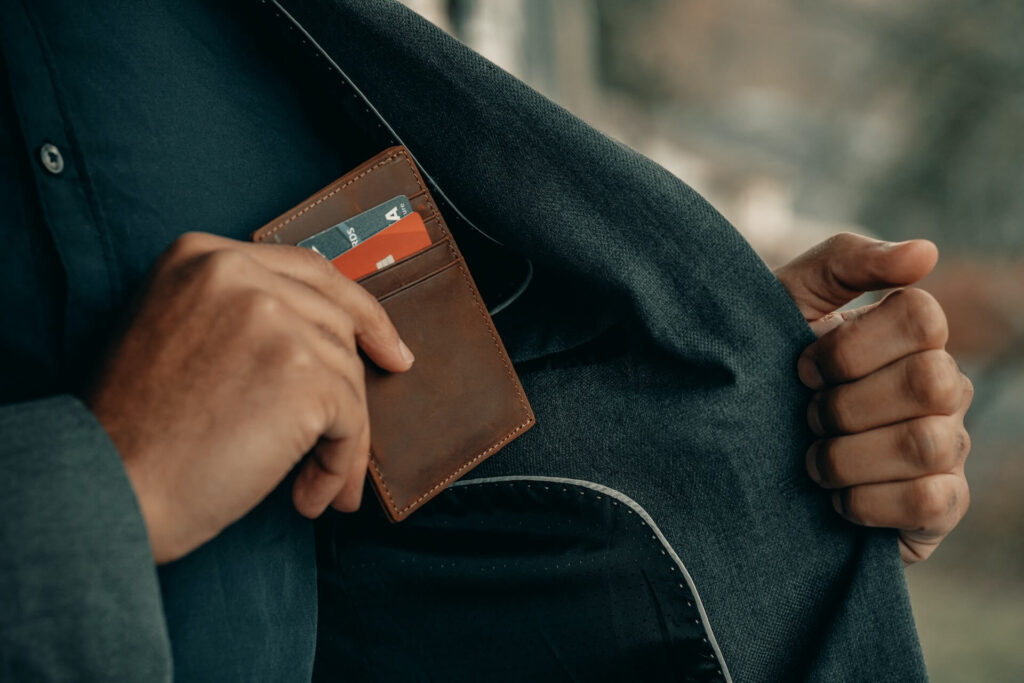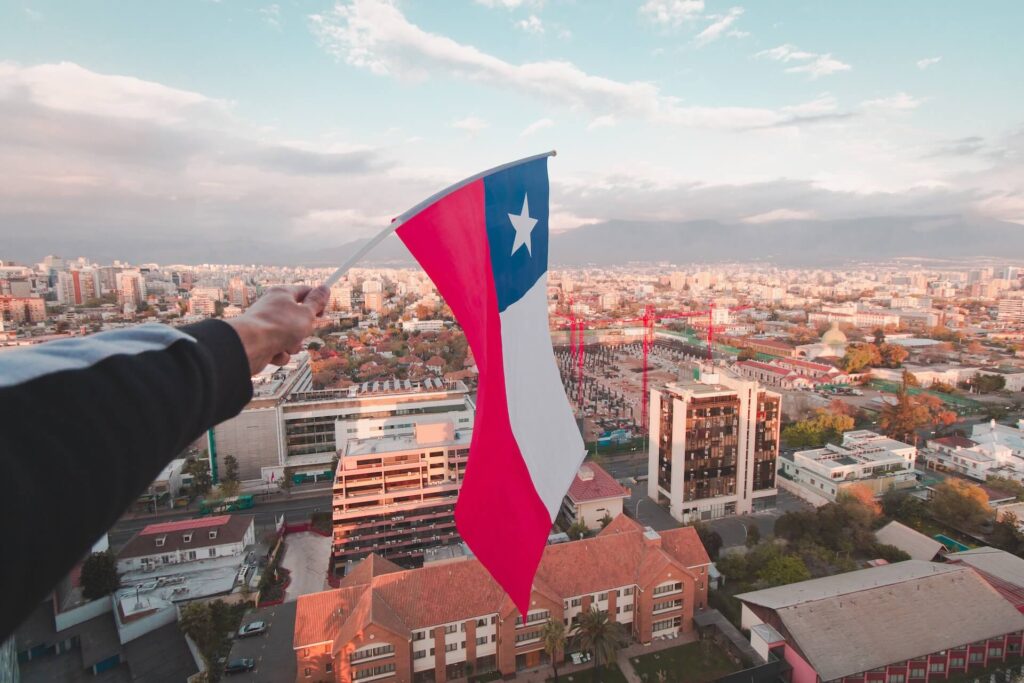Updated on February 3, 2024 by Lou Mac
Although Spanish is essentially the same language everywhere, every country has their own unique slang.
Chile is no exception, in fact, it’s quite the opposite – Chilean slang is one of the biggest examples of this.
Even native Spanish speakers sometimes struggle to understand Chilean Spanish, so do not get discouraged!
In this post, we’ll give you a handy list of the most common Chilean slang terms to get you ready for your trip to Chile, or to impress your Chilean friends!
1. Po — Pues
This versatile word supposedly comes from the Spanish word pues, which in itself is pretty challenging to understand.
Po has a similar meaning, and is usually used as a filler word and to add emphasis.
- ¡No po! (No way!)
- Ya po, ¿por qué no quieres ir? (Come on, why don’t you want to go?)
- ¿Te gustó la torta? (Did you like the cake?)
Sí po, fue súper rica. (Yes of course, it was so nice.)
2. Weón — Friend, guy, man, idiot
Like many other Chilean slang words, the meaning of this word all depends on the context. If you say it in an angry way it could be an insult, but if you say it in a friendly way it refers to a friend or brother. Feel free to add an “a” at the very end of the word to refer to a woman: weona.
- ¡Oye, weón! No hagas eso. (Hey, man! Don’t do that.)
- Eres un weón muy simpático. (You’re a likeable guy.)
3. ¿Cachai? — Do you understand? Does it make sense?
You better get used to this one, because it is one of the most common Chilean slang terms! People of all ages use it, and it doesn’t get old.
It means something along the lines of “Do you understand?” “You know?” and even “Did you see/hear?” We can also conjugate it in the past tense as cachaste.
- Me gusta disfrutar la vida, ¿cachai? (I like to enjoy life, you know?)
- ¿Cachaste la nueva serie de Netflix? (Did you see the new Netflix series?)
4. Cacho — I understand

This is a very Chilean way of saying “I understand,” and you can use it to reply to someone when they say ¿Cachai?
You can also say No cacho, which is the same as saying “I don’t understand.”
- No cacho, ¿me lo puedes explicar otra vez? (I don’t understand, can you explain it to me again?)
5. Bacán — Cool, awesome, nice
This is another of the most famous words in Chile. It’s an adjective used to describe many things: moments, things, food, people etc.
- La película estuvo bacán. (The movie was good)
- Se ve como un chico súper bacán. (He looks like a really nice guy)
6. Wena — Good, hello
You’ll definitely sound like a native if you greet someone by saying Wena wena!
Wena can also refer to something as “good” or “nice.” It’s the same as buena (good) but with a Chilean twist.
Note that this word is very informal!
- Wena wena hermano. (Hello brother.)
- Estaba wena la comida. (The food was nice.)
7. Paco — Cop
You probably wouldn’t want to call the police this if you’re talking to them, but it’s a good one to be aware of!
It’s a very informal (and sometimes derogatory) word.
- ¡Que alguien llame a los pacos! (Somebody call the police!)
8. Ahí no más — Average, not great

This phrase means that something isn’t that great.
Don’t try to understand the individual letters, because it doesn’t make sense—it literally means “there not more”!
- La comida está ahí no más. (The food is average.)
- Me fue ahí no más. (It didn’t go very well for me.)
9. Piola — Alright, nice, relaxed
You might be sick of hearing this, but piola is another word whose meaning often depends on the context. Let’s have a look at some examples:
- Sí, su polola es super piola. (Yeah, his girlfriend is super relaxed.)
- Estuvo piola la cena anoche. (The dinner last night was alright.)
10. Porfiado/a — Stubborn
Like pretty much every word that ends in -ado or -ada in Chile, this word is often shortened (in spoken Spanish) to porfiao or porfiá.
- Es porfiado, nunca come verduras. (He’s stubborn, he never eats vegetables.)
11. Cuático/a — Exaggerator, intense
Cuático is a hard one to translate into English, but the closest word might be something like “exaggerator,” “intense” or “scandalous.” Depending on how you say it, you could use it to say someone is being a little dramatic or over-the-top, or also to say that something is intense.
- ¿Viste la serie Vikingos? Es muy cuática. (Did you see the series “Vikings”? It’s super intense.)
- Ni hace frío, no seas cuático. (It’s not even cold, don’t exaggerate.)
12. Brígido/a — Intense, crazy, cool

This is another super difficult one to translate into English, because it can mean so many things!
It’s used to describe both good and bad things. Here are some things it can mean: intense, crazy, cool, shocking, scary.
It can be used similarly to cuático in some situations (though not in others).
- El gym estuvo brígido hoy. (The gym was intense today.)
- Fue súper brígido, pensé que iba a morir. (It was insane, I thought I was going to die.)
13. Fome — Lame
Fome is a word you don’t realise you need until you actually learn it. It’s a very handy descriptor, and it’s not something you’ll often get taught when you study Spanish!
- No volvería, lo encontré un poco fome. (I wouldn’t go back, I found it a bit lame.)
14. Cuico/a — Posh
This is often used to address “upper class” people here in Chile, and it’s connotations are usually negative.
It can be used as an adjective, or as a noun when used with el/la (the).
- Vive en Las Condes, el cuico. (He lives in Las Condes, the posh bastard.)
15. Está la cagada — It’s a mess
If you make a mistake or things aren’t going quite right, this is the phrase for you! It could also be translated to something a little less G rated.
You’ll often hear Chileans say this as Está la cagá.
- No quiero ir allá, está la cagada. (I don’t want to go there, it’s a mess.)
16. Tener paja — To not be bothered/feel lazy

If you’re like me, the phrase “I can’t be bothered” features too frequently in my day to day vocabulary.
But save this one, because it’ll come in very handy!
- No voy a salir esta noche, tengo paja. (I’m not going to go out tonight, I can’t be bothered.)
17. La micro — The bus
If you want to save a lot of money on Ubers or taxis, this one’s for you.
Lots of Spanish-speaking countries have their own ways of saying “bus,” and so micro is pretty unique to Chile.
- ¿Dónde pasa la micro? (Where does the minibus stop?)
18. Pituto — A contact
Doesn’t life get a lot easier with a good contact in your life? I mean, not like the one that corrupt politicians have, but just somebody in a good position who can help you out.
For example, imagine you had a friend working for a restaurant who could get you cheap drinks all night. Well that would be a nice pituto.
- No te preocupes, tengo un pituto allá. (Don’t worry, I’ve got a contact there.)
19. Mota — Weed
You should know that recreational use of marihuana is legal in Chile, which means that you can enjoy it in private.
Just be careful how much you smoke, otherwise you could get como chancho (see the phrase below!)
- Oye, ¿sabes dónde conseguir mota? (Hey, do you know where to get weed?)
20. Estar como chancho — To be really high (on weed)

Literally, como chancho actually translates to “like a pig,” but it actually means that you’re really high.
- Estás como chancho. (You’re really high.)
21. Arriba de la pelota — Drunk
Some people love enjoying a drink or two, but sometimes a good party gets out of hand and people get a bit arriba de la pelota: aka “drunk.”
- Estaba arriba de la pelota en la fiesta de anoche. (I was really drunk at the party last night.)
22. Curado — Drunk
Also meaning “drunk” but literally meaning “cured,” this phrase is also super common in Chile. It’s actually mostly spoken without the “d,” as us Chileans like to omit that letter. So it would be curao.
- Estaba muy curao anoche, no quiero tomar nunca más. (I was really drunk last night, I never want to drink again.)
23. Carrete — Party
Fiesta (party) is such a famous Spanish word that even people who don’t know the language know what it means.
But while everyone understands that word in Chile, the term of choice for us is actually carrete.
- Oye pero ¿fuiste al carrete anoche o no? (Okay, but did you go to the party last night or not?)
24. Hacer una cucha/vaca — To chip in

Let’s say you want to have an asado (barbeque). You gather some money together with your family or friends, so that everyone shares the cost—this is known as hacer una chucha or hacer una vaca.
It’s also a smart way to save some coins if you’re on a tight budget!
- Hagamos una cucha para el asado de hoy. (Let’s all chip in for the asado today.)
- Hicimos una cucha para comprar los materiales. (We all chipped in to buy the materials.)
25. Copucha / copuchento/a — Gossip / someone that loves gossip
We all know that one person who loves a bit of gossip.
In Chilean slang, we call gossip copucha and someone who enjoys gossiping copuchento or copuchenta. We’ve even got a verb for gossiping! It’s copuchear (to gossip).
- ¿Escuchaste la copucha? (Did you hear the gossip?)
- Ricardo se convirtió en un copuchento. (Ricardo has become a gossiper.)
26. Pololear — To be in a relationship
There are different levels in Chilean relationships. When you first start to go out with somebody we call it andar (literally “to walk”) with someone, then if you take that person to meet your parents at home it most definitely converts to pololear.
When things get a lot more serious and you get engaged, then you’d be called novios (which can actually mean “boyfriend” or “girlfriend” in other parts of the world).
- ¿Viste que tu ex está poloeando con mi compañero de trabajo? (Did you see that your ex is going out with my workmate?)
27. Pololo/a — Boyfriend/girlfriend
In the same vein, pololo and polola are very Chilean ways of saying “boyfriend” and “girlfriend.”
In other Spanish-speaking countries it’s normal to say novio and novia, but in Chile it’s either only said very formally, or said because you’re engaged.
- Perdón, pero no estoy buscando pololo. (Sorry, but I’m not looking for a boyfriend.)
28. Pelarse — To have an affair

On the other end of the relationship scale, we have pelarse: to have an affair.
(Note this is very close to the verb pelear (to fight) so don’t get them confused!)
- Me enteré que ella se estaba pelando. (I found out she was having an affair.)
29. Pasarse rollo — To overthink
When te pasas el rollo, it means that you’re overthinking something.
- No te pases rollo, va a estar bien. (Don’t overthink, it’s going to be fine.)
30. El corte — The best
You’ll definitely hear this one if you listen to a lot of Chilean music. It’s very hard to explain, but it means something like great/cool/the best.
It’s not a word used by all Chileans, but it’s worth knowing so that you can understand our urban music!
- ¿Qué saben de corte? Nosotro’ somo’ el corte. (What do you know about corte? We are el corte.) (Lyrics from “Los Malvekes”.)
31. Pasarlo chancho — To have a really fun time
Weirdly or not, Chileans have a lot of use for the word chancho which simply means “pig.” Could it be an obsession with eating pigs? Nobody seems to know, but what we do know is that we love to make up phrases with it!
- ¡Pásalo chancho este fin de semana! (Have a great time this weekend!)
32. Pega — Work

In Chile we like to say pega instead of trabajo (work), however feel free to use either!
- Voy a llegar tarde a la pega. (I’m going to arrive late to work.)
33. Levantarse con la pata izquierda — Bad luck
Haven’t we all had one of those really bad days when you feel that nothing is going your way? Well, Chilean people refer to this as “waking up with the left foot.”
- Me levanté con la pata izquierda. (I woke up with bad luck.)
Some other ways of saying bad luck are:
- Mala cuea
- Meao de gato (“cat piss” – delightful!)
And there we have it!
Go out and impress some Chileans with all your new chilenismos.

